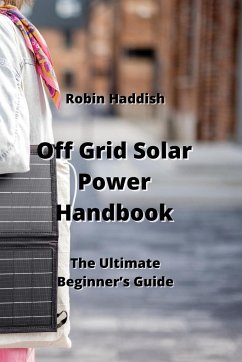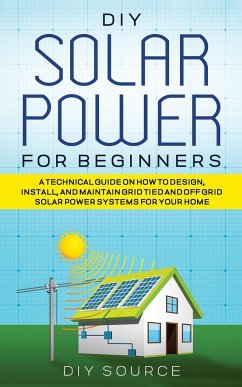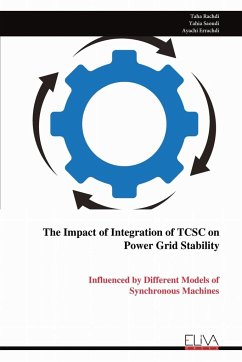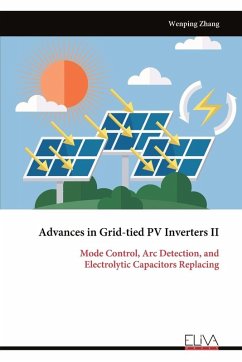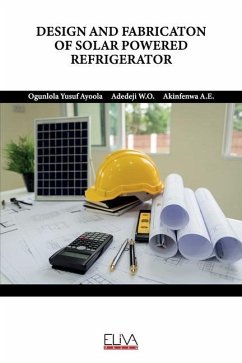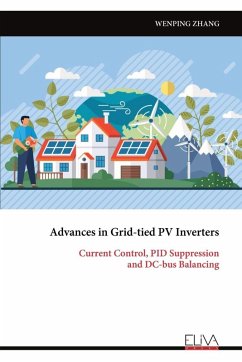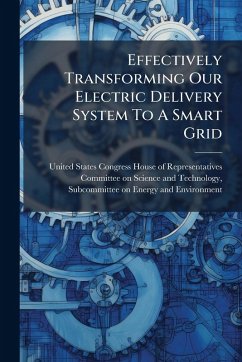
Off-Grid Solar Power
Discover How To Build A Self-Sufficient Solar System
Versandkostenfrei!
Versandfertig in 1-2 Wochen
71,99 €
inkl. MwSt.

PAYBACK Punkte
36 °P sammeln!
Choosing the right solar panel and components for a solar energy system is crucial to ensure optimal performance, efficiency, and longevity. Here's a step-by-step guide to help you make informed decisions: Determine Your Energy Needs: Calculate your daily energy consumption in kilowatt-hours (kWh). This will help you determine the size of the solar system you need. Select Solar Panels: Type of Solar Panels: There are three main types of solar panels: monocrystalline, polycrystalline, and thin-film. Monocrystalline panels are more efficient but tend to be more expensive, while polycrystalline p...
Choosing the right solar panel and components for a solar energy system is crucial to ensure optimal performance, efficiency, and longevity. Here's a step-by-step guide to help you make informed decisions: Determine Your Energy Needs: Calculate your daily energy consumption in kilowatt-hours (kWh). This will help you determine the size of the solar system you need. Select Solar Panels: Type of Solar Panels: There are three main types of solar panels: monocrystalline, polycrystalline, and thin-film. Monocrystalline panels are more efficient but tend to be more expensive, while polycrystalline panels offer a lower cost-per-watt option. Thin-film panels are less efficient but can be flexible and lightweight. Efficiency: Higher efficiency panels generate more power per square foot, but they can be costlier. Consider your available space and budget when choosing efficiency. Durability: Look for panels with a durable frame and tempered glass to withstand weather conditions. Select an Inverter: Inverter Type: There are two main types of inverters: string inverters and microinverters. String inverters are cost-effective but can suffer from reduced efficiency if one panel is shaded. Microinverters optimize the performance of each panel individually. Inverter Capacity: Ensure the inverter's capacity matches or exceeds the total capacity of your solar panels. Battery Storage (Optional): If you want to store excess energy for use during the night or in case of power outages, choose a suitable battery storage system. Options include lithium-ion batteries or lead-acid batteries. Charge Controller: If you're using a battery storage system, you'll need a charge controller to prevent overcharging and extend the battery's lifespan. Mounting and Racking: Ensure you have the appropriate mounting and racking systems to securely install your solar panels. Consider factors such as roof type, angle, and orientation. Warranty and Manufacturer Reputation: Investigate the warranties offered by panel manufacturers and inverter manufacturers. A longer warranty period indicates the manufacturer's confidence in their product's durability. Also, research the reputation of the manufacturers. Government Incentives and Regulations: Check for government incentives, tax credits, and rebates available in your area for installing solar panels. Be aware of local regulations and permits required for solar installations. Installation and Maintenance: Consider whether you'll install the system yourself or hire a professional installer. Solar installations require careful planning and expertise. Professional installers ensure the system is installed correctly and safely. Cost Analysis: Calculate the total cost of your solar system, including panels, inverters, batteries (if applicable), installation, and maintenance. Compare this cost to your expected energy savings and any available incentives to determine the system's payback period. Monitoring System: Implement a monitoring system that allows you to track the performance of your solar panels and identify any issues promptly. Future Expansion: If you anticipate increasing your energy consumption in the future, plan for system expansion by selecting components that can accommodate additional panels or batteries. By carefully considering these factors and conducting thorough research, you can choose the most suitable solar panel and components for your specific energy needs and budget, ultimately maximizing the benefits of your solar energy system.



